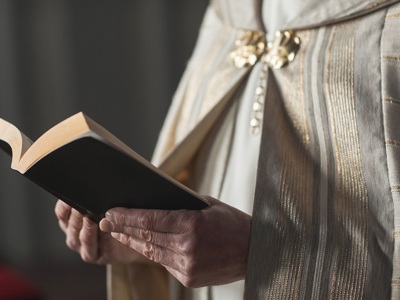
Spiritual abuse: Weaponising faith
Dino Nocivelli and Shaimaa Al-Mukhtar examine different forms of spiritual abuse and how justice can be pursued in civil courts.
Posted on 06 August 2025
Spiritual abuse is a form of psychological, emotional or financial abuse that takes place in a religious or spiritual context.
While legal definitions of the concept are still under review, it is widely understood that spiritual abuse is marked by a pattern of coercive and controlling behaviour, as confirmed by the Church of England’s conception of spiritual abuse.
It is considered a subtype of emotional and psychological abuse rather than a standalone category. This often involves the misuse of religious scriptures and requirements for secrecy and silence, along with isolation from other communities and support networks.
Most harrowing is the forced denial of a person’s right to express their faith, the opportunity to seek knowledge or a deprivation of the love of God. For a person of faith or vulnerability, these abusive tactics can lead to significant psychological harm.
A number of civil cases have shown that spiritual abuse can occur independently or along with other forms of abuse, including physical or sexual. In some examples, it has acted as a gateway to further abuse and can involve financial exploitation.
Spiritual abuse is often perpetrated by a person that holds, or claims to hold, a position of religious authority or leadership. It may involve the manipulation of religious beliefs to exploit people for financial gain, forced service or personal advantage, often characterised by imbalances of power or trust.
Abuse in religious institutions and by religious leaders
For a religious institution to be held accountable for abuse in civil courts, the ‘close connection’ test for vicarious liability (where a party is liable for the actions of another, even if they were not directly involved) must initially be fulfilled.
Spiritual leaders can be considered to be in roles akin to employment and could, therefore, fulfil the test to establish vicarious liability. In this context, claims can be brought against religious institutions for abuse - whether spiritual, sexual or physical - perpetrated by religious authorities within the institution.
The 2022 Independent Inquiry into Child Sexual Abuse (IICSA) reported that there was no doubt that sexual abuse of children takes place in a broad range of religious settings, and that evidence of egregious failings was found. IICSA’s investigation into the Roman Catholic Church in England and Wales revealed a history of child sexual abuse for prolonged periods of time, in which the Church received more than 3,000 complaints against more than 900 individuals connected to the church.
The Inquiry considered child protection in 38 religious organisations in England and Wales, including Jehovah’s Witnesses, Islam, Judaism, Sikhism, Hinduism, Buddhism and Christian denominations including Baptists and Methodists, The investigation found that many religious organisations put their own reputation above the needs of victims and survivors, failed to report allegations of abuse, and lacked or failed to implement safeguarding policies.
The Church of England’s National Redress Scheme has been set up to address the ongoing impact of church-related abuse. Eligible applicants to the scheme could receive financial redress, therapeutic, spiritual and emotional support, and an acknowledgement of wrongdoing on the part of the Church. The need for this scheme highlights the prevalence of abuse in religious institutions as well as the lifelong impact of spiritual, sexual and other forms of abuse at the hands of those in positions of religious authority.
Spiritual abuse and financial exploitation
In the case of Curtis v Curtis [2011], the claimant, who had transferred his home as a donation to a spiritual counselling charity, brought a successful claim for assets transferred under undue influence. The court found that the claimant’s decision to transfer his home was not based on free and informed thought, which allowed the proceedings to continue. The relationship between the donor and spiritual advisor was said to be one of influence and the donation was clearly made to the claimant’s disadvantage. This case supports potential claims for the recovery of assets transferred to abusers following spiritual abuse.
Abuse of this kind is often inflicted in an insidious way, involving complex psychological tactics designed to manipulate and control victims. Well established religious principles are skilfully distorted to coerce vulnerable people into submission and take financial advantage of them.
A case currently under investigation at Leigh Day involves a self-proclaimed false religious saint and leader of Islam. The abuser allegedly took advantage of a vulnerable person who had converted to the religion shortly before the abuse took place. This harrowing case has brought to light the extensive spiritual and psychological tactics used by perpetrators to obtain financial benefit from their victims.
Abusers have been known to use their victim’s religious belief, whatever it may be, and the concept of God in order to meet their own needs, financial or otherwise. Threats of divine punishment can be used as a tool to obtain psychological control for a specific end. Here, abusers falsely claiming to be in positions of religious authority exploit vulnerable followers who are seeking spiritual guidance.
This type of abuse, where a victim’s own religious belief is used as a weapon against them, goes to the core of their vulnerabilities. As a result of sustained schemes of spiritual control, victims are often left with severe inner conflicts, struggling to break free from the psychological shackles of their abusers. This can leave survivors with lasting psychiatric injuries such as complex PTSD, depression and anxiety. Where abusers have intended to profit financially from their victims, survivors also find themselves left with significant financial losses accompanying their injuries.
In situations where spiritual abuse has resulted in a psychiatric diagnosis, people left with psychological suffering and financial losses could seek compensation from perpetrators or the institution in which the abuse took place. Spiritual abuse is a recognised form of psychological abuse found across all faith contexts, in various forms. Perpetrators must be held to account and ensure that approaches to spiritual and religious leadership are free from harm, as well as free from personal and financial gain.
Church of England redress scheme
The Church of England is launching a redress scheme to address abuse suffered by individuals at the hands of clergy, staff, or Church volunteers. To find out more about the Church of England redress scheme and how Leigh Day is helping survivors of church-related abuse access the support they deserve, click here.

Dino Nocivelli
Dino is an experienced child sexual abuse claims lawyer. He is also a member of the Association of Child Abuse Lawyers and an ambassador for The Survivors Trust, Kyniska Advocacy, Seen & Heard, and Revival – Wiltshire RASAC.

Shaimaa Al-Mukhtar
Shaimaa works with Dino Nocivelli on cases brought against both individuals who have abused positions of power and institutions that have failed to protect children suffering abuse.

Abuse lawyer welcomes further conviction of former Catholic priest Dennis Finbow for historic child abuse
Lawyers representing a survivor of sexual abuse committed by former Catholic priest Dennis Finbow have welcomed news that he has pleaded guilty to further offences involving multiple children over several decades, meaning a full criminal trial shall not be required.

